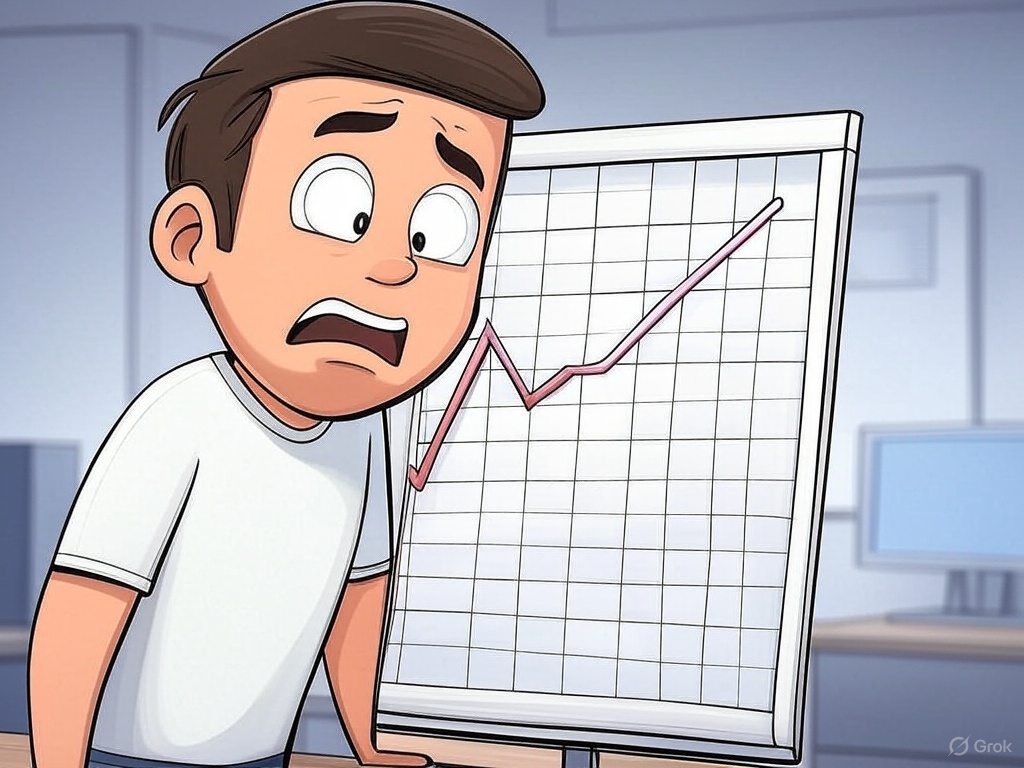Fear is a powerful motivator. Throughout history, it has been used to persuade people to support certain policies, often by stoking alarm about trends that are either temporary or ultimately inconsequential. This approach is particularly common among skeptics, who have particular objectives in mind, but are unable to persuade others to adopt their policies.
The Latest Panic: Luxury Spending
A recent Bloomberg article provides a perfect example of this pattern. The piece highlights increased spending by high-income earners, presenting it with an ominous tone that suggests this trend somehow threatens economic stability or equity.
But is luxury spending by the wealthy actually a problem? There are multiple reasons to question this premise.
First, this could simply be a temporary phenomenon related to the business cycle. Consumer behavior often shifts following economic disruptions like the pandemic, with spending patterns normalizing over time. What Bloomberg identifies as a concerning trend may just be a short-term adjustment as the economy rebalances.
More importantly, high-end spending frequently funds innovation that eventually benefits everyone. Consider Tesla. Though it's currently unpopular due to its owners politics, it was a luxury brand that wealthy early adopters subsidized, which subsequently accelerated the development and accessibility of electric vehicles for broader markets. The iPhone began as a premium product costing $499-$599 in 2007 (approximately $705-$845 in today's dollars), but the technology it pioneered has made smartphones ubiquitous and affordable for billions.
This pattern repeats throughout economic history: what begins as a luxury often becomes an everyday item. Flat-screen televisions were once the domain of the ultra-wealthy at $15,000+, but today a superior TV can be purchased for under $500. Air conditioning, refrigerators, automobiles, and countless other innovations followed this same trajectory—beginning as luxuries and eventually becoming standard features in middle-class households.
A Pattern of Misplaced Panic
The approach in the Bloomberg article follows a predictable template we've seen repeatedly in economic commentary. A trend is identified, immediately assumed to be permanent, and framed as inherently problematic.
Remember the panic over donor-advised funds a few years ago? Critics warned these charitable vehicles would hoard wealth indefinitely without benefiting society. Yet data shows these funds regularly distribute substantial portions of their assets to working charities.
Similar alarms were raised about stock buybacks, with claims they were starving companies of investment capital. The evidence has not supported this narrative, as companies conducting buybacks have generally maintained healthy R&D and capital expenditure levels.
Perhaps most famously, in the 1980s, countless articles warned about Japan's inevitable economic dominance over the United States. Books like "Trading Places: How We Are Giving Our Future to Japan" painted a future where America would become economically subservient to Japan. Today, such predictions appear quaint.
Maintaining Perspective
We should approach economic fear-mongering with healthy skepticism. When presented with alarming trends, remember two key principles:
- Many economic patterns are cyclical or temporary, resolving naturally without intervention.
- Even persistent trends often don't produce the dire outcomes predicted by their loudest critics.
The economy is extraordinarily complex, with countless interdependencies and self-correcting mechanisms. When we respond to every fluctuation with panic and calls for radical intervention, we risk implementing "solutions" that create more problems than they solve.
The economy is extraordinarily complex, with countless interdependencies and self-correcting mechanisms. When we respond to every fluctuation with panic and calls for radical intervention, we risk implementing "solutions" that create more problems than they solve.
Fear may sell articles and drive political campaigns, but it rarely provides the proper foundation for sound economic policy. Instead of reacting to each new crisis, we would be better served by maintaining perspective and recognizing that capitalism's adaptive nature has consistently delivered rising living standards despite regular predictions of its imminent failure.

